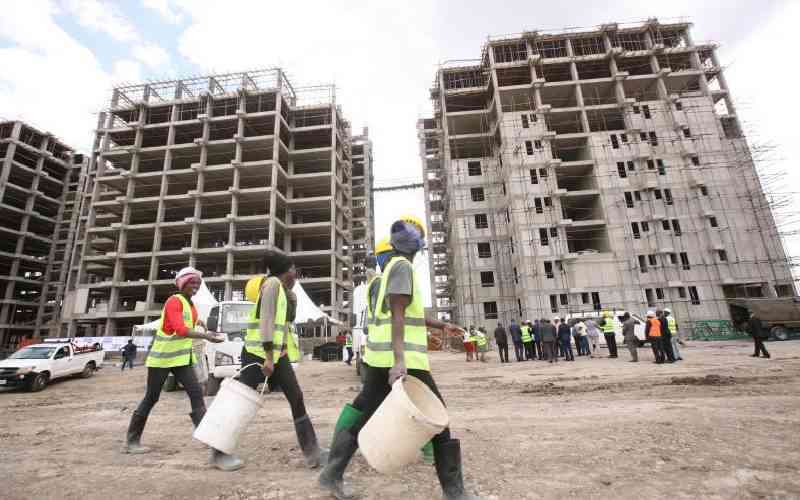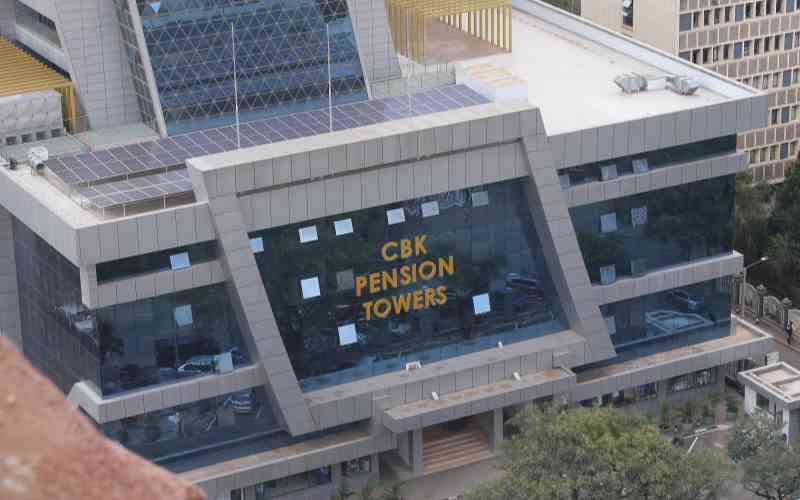
Casual workers at affordable housing project in Mukuru, Nairobi. [File, Standard]
Kenya Property Developers Association has inked a partnership with Kenya National Chamber of Commerce and Industry (KNCCI) aimed at opening doors to new financing models to tackle affordable housing and sustainable urban development.
The lobby seeks to leverage technical expertise, practical experience and challenges faced by its members to create a voice to push for policy reforms while leveraging the networks the chamber enjoys across sectors of the Kenyan economy.
“From streamlining approval processes, advocating for consistent policies, and creating a stable environment that attracts investment, we will move from fragmented requests to coordinated advocacy,” said KPDA Chairman Ken Luusa.
This was during the signing of the partnership in Nairobi on Tuesday. According to KNCCI, twenty-two per cent of Kenyans live in cities, and the urban population is growing at a rate of 4.2 per cent every year.
Nairobi is ranked among the top five fastest-growing real estate markets in Africa. Kenya requires 200,000 new housing units annually to meet demand, yet only 50,000 homes are built, leaving the housing deficit growing by 150,000 units per year.
As a result of this mismatched supply and demand, housing prices have increased by 100 per cent since 2004.
“Rising demand in urban areas, especially Nairobi, Mombasa, Kisumu and Nakuru, has fueled expansion in gated estates, apartments and mixed-use. Construction of housing is labour-intensive, leading to job creation,” said KNCCI President Eric Rutto.
Rutto also noted that retail space continues to grow, with malls like Two Rivers, Westgate, Garden City, and Sarit Centre expanding Nairobi’s shopping culture.
Affordable Housing Board Chairman said they have reduced construction costs, mobilised more than 100 private sector actors, including 33 consortia into housing development, and assembled a pool of built environment professional consultants involved in the design, supervision, sales and marketing, as well as management of the completed units,” said Simu.







